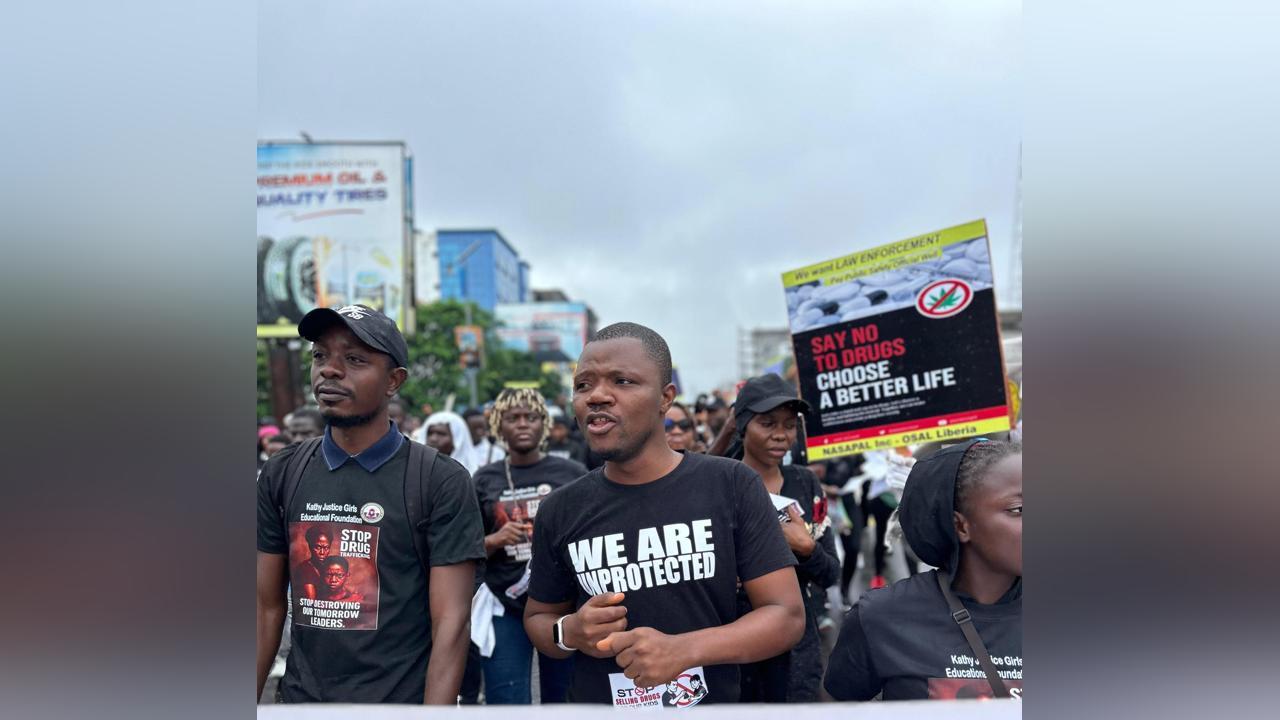Africa-Press – Liberia. A Liberia rights Advocate, Titus B. Kpalah, has championed calls for an immediate systematic reform within the Liberian National Police (LNP), to address what he describes as alleged unprofessional rule of engagement, human rights abuses, and international misrepresentation by LNP officers.
Mr. Kpalah made the call following the death of Mr. Matthew Mulbah, a Liberian, who was shot and allegedly killed by a police officer during the execution of an arrest.
Addressing a press conference on Wednesday, October 15, 2025, on the topic “Rethinking systemic reforms in LNP, an unpopular opinion”, Mr. Mulbah said the conversation around rethinking police reform in Liberia often resurfaces after tragic incidents, public outrage, or international pressure.
However, he added that real, lasting reform has remained elusive, while urging that if the government is serious about building a professional, accountable, and community-centered police force, then it is time to fundamentally rethink how police reform is addressed in Liberia.
He stated that Liberians are often made to believe that the Police are less professional, who conspire with notorious criminals to exploit citizens and survive on “traffic susu” (bribe in traffic).
According to him, these testimonies are either partially true or potential fibs that tend to undermine the long-lasting service the LNP has contributed to Liberia’s post-conflict reconstruction process up to now.
He urged Liberians to reflect on how a police officer was wounded in Congo Town, and the only repercussion was releasing eight live bullets in the chest, arms, and legs of a mentally ill man, Matthew Mulbah, resulting in his death.
Commenting on the importance of policing reform, he noted that Liberia’s current position as a non-permanent member of the UN Security Council, where its leaders are advocating for global security or justice on behalf of different countries. In contrast, its police force often works under poor conditions, low pay, lack of psychological support, inadequate technical training, and drives a disconnect between global demands for accountability and local progress.
“At the UN security council, Liberia is preaching multilateral cooperation, human rights norms and accountability, but when we compare the nation’s global struggle for peace and what it does at home will undermine our credibility as the oldest African Nation ‘that should have known better’. The police must treat disillusionment among citizens as a core spirit of democratic value and not as a weapon against the state, or some sort of revenge mechanism. Always attempting to inflate these values will cripple the momentum to influence diplomatic ties and our global reputation”, he said.
He lamented that they have watched from afar, and international partners, donors, and civil society will likely demand more progress on good governance, transparency, rule of law, and human rights.
Mr. Kpalah warned that being on the Security Council can open more doors for support, but only if Liberia can show it is meeting those domestic expectations.
He stated that reform now does not necessarily mean stripping a struggling officer of his job when citizens demand dismissal, but it defines the country’s readiness to provide adequate resources and technical capacity training for servicemen and women.
“Liberia may be seen now as a country of peace, but the true reality is, the nation is heavily divided from governance construct to citizens’ distrust. Utilizing community-centered policing will build stronger public confidence in the police, address over-criminalization in less investigated crimes, and give ownership to local communities. When communities are treated as partners in crime prevention, unity becomes a source of strength. In such a system, communities evolve into active watchdogs, enhancing safety and accountability at the grassroots level.” He concluded.
For More News And Analysis About Liberia Follow Africa-Press






